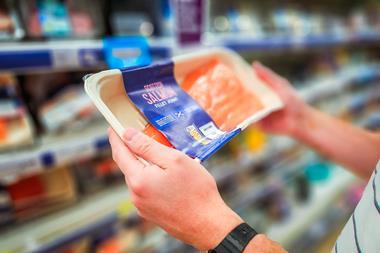Supermarkets hold the fate of the British pig industry in their hands as wheat costs spiral out of control, BPEX has warned.
Many farmers are crying out for a price rise after feed suppliers hit them with a 60% wheat cost increase forcing them to accept losses of up to £22 per pig at current values.
"It's no exaggeration to say the pig industry is in crisis," said BPEX chief executive Mick Sloyan.
"I'd compare it to the 1998 crash on profitability, which eventually cut pig production by 40%. Producers will stick out a couple of months and see what retailers do, then, if things don't get better, they'll start quitting."
Many producers sign 12-month feed contracts that expired in August, something Sloyan likened to "coming off a fixed rate mortgage deal".
The jump in feed prices is equivalent to a 30% rise in production costs. With farmers getting an average 109p/kg deadweight for pigs, an increase of 30p/kg was necessary just to meet the higher production costs, Sloyan said. That was equivalent to a "modest" 8p extra on a 250g pack of bacon payable by the consumer.
"For retailers it's a question of paying a little extra now or waiting for the industry to collapse and paying a lot more for pork later," he added.
Confidence has already started to seep out of the sector, with the provisional results of Defra's June agricultural census showing a severe decline in young female breeding stock, known as gilts. Maiden gilts not yet being used for breeding are down 7.5% while those already pregnant have fallen by 20%, heralding a drop in home-produced pork volumes.
Simon Twigger, director of dairy and convenience food for Sainsbury's, said consumer demand for British pork was growing and counter pork had been switched to domestic suppliers accordingly.
"We've worked hard to maximise carcase utilisation for fresh pork and pork manufacturing, recently introducing two lines into our basics range to maximise returns to pig farmers."















No comments yet